

Since the death of our dear friend and TLR co-founder, Leo Linbeck, Jr., there has been an outpouring of expressions of respect and love for him. Like so many others, I am deeply saddened at Leo’s physical departure from this earth. But at the same time, I feel this warm, glowing sense of gratitude that I had the opportunity to know and learn from this remarkable man.
Since the founding of TLR twenty years ago, the times that I have spent with Leo will forever live in my memory. We met in our homes and in our offices, we talked on forest trails and along sandy beaches, we talked and planned and planned and talked. What I would give for one more day with our friend Leo…while remaining grateful for the times we were able to share.
Leo Linbeck was the ultimate mentor and friend…always patient, always kind, always thoughtful, always a caring listener. He was the ideal role model. He possessed a mind so incisive that he could quickly get to the heart of any complex issue.
Of all of the great lessons I learned from Leo, three stand out:
1. Virtue is first. Everything else is second.
2. Seek the ideal, accept the optimum.
3. When planning a bold initiative, the words “can’t” or “impossible” are not to be spoken.
Leo Linbeck has been a blessing in my life and in the lives of those privileged to know him. Like everyone he touched, Leo has made me a better person…a better husband, a better father, a better citizen.
It was impossible to spend time around this inspiring man without being positively influenced. Leo’s legacy will live on in the hearts and minds of the many people he befriended, tutored and mentored over the years. My fondest wish for any child is that he or she could be fortunate enough to have a mentor and a friend like Leo. I will miss him dearly. May he rest in everlasting peace.
Governor Rick Perry: The Most Effective Tort Reformer in Our Nation’s History

Governor Rick Perry has announced that he is not running for re-election as Texas Governor. We in TLR are deeply grateful to the Governor for the essential role he has played in reforming the Texas civil justice system, both as Lt. Governor and Governor.
It is no exaggeration to say that Governor Perry has been the most effective tort reformer in our nation’s history. Broad and effective reforms have been enacted in each of the legislative sessions in which Rick has been Governor, including reforms to medical liability lawsuits, abusive asbestos and other mass-tort litigation, and product liability cases. The Governor has shown leadership in making litigation more fair and efficient, enabling defendants to get a fair trial and plaintiffs to get quicker and fuller settlements. The Governor has used his veto power to make sure that bad legislation was not enacted into law. In addition, the Governor has appointed outstanding lawyers and legal scholars to the Texas judiciary as vacancies have occurred. The result is that Texas has moved from perhaps the most unfair civil justice system in America to one that has greater balance and predictability, which is a big reason why Texas has led the nation in economic and job growth during Rick Perry’s tenure as Governor and why access to healthcare has increased dramatically on Rick’s watch.
Governor Perry has travelled the nation and the world to recruit businesses, entrepreneurs and job creators to our State, and a key part of his message has been that Texas has safeguards against abusive litigation and frivolous lawsuits, whereas many other states, such as California, Illinois and New York, do not. The message has resonated, with companies like Caterpillar, Toyota and Exxon expanding their facilities and operations in Texas, creating jobs and expanding our State’s tax base.
Thank you, Governor Perry.
Mary Tipps Marks 10 Years with TLR
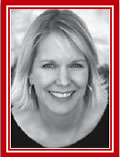
TLR Executive Director Mary Tipps marks her tenth anniversary with the organization this year. Mary joined TLR as the Director of Community Affairs in 2003 and was named Executive Director in 2009.
Mary lives in Austin where she is an active community volunteer, working closely with the Austin Children’s Shelter where she was named “Volunteer of the Year” in 2003 and again in 2008. Mary grew up in Houston and graduated from the University of Texas at Austin. She is a fluent Spanish speaker who has worked and studied in Mexico and frequently travels there.
TLR President Dick Trabulsi commented: “TLR is grateful to have Mary as a team leader. There is no one connected to the Capitol who is held in more affection and with higher respect than Mary. Like all members of the TLR organization, Mary is a selfless team player; she takes her responsibilities seriously and executes them diligently and with good humor.”
TLR Special Projects Director Named
South Central Chapter of Leukemia & Lymphoma Society Man of the Year
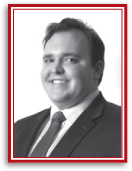
TLR Special Projects Director, William “Hutch” Hutchings, was named 2013 Leukemia & Lymphoma Society’s Man of the Year campaign last month, ending a ten-week competition between other Austin area business and community leaders in which Hutch and others worked to raise contributions to go toward research and a cure of blood cancers. A total of $504,441 was raised. The Leukemia & Lymphoma Society fund blood cancer research and provide education and support services for patients and their families. Hutch joined the TLR team in 2012.
A Virtuous Man, My Friend And Mentor
Leo Linbeck, Jr. was a remarkable man: kind and gentle, awesomely brilliant and impressively knowledgeable, with a soaring spirit and a backbone of steel. His faith in God, his devotion to his Church, his love of family, his patriotism to State and Nation, his commitment to community, his loyalty to friends, were all inspirational to me.
I miss Leo, and always will. But he is a colossal influence in my life and thus will always be in my life because he is part of who I am, when I am being who I aspire to be.
Here are a few of the things that I most admired about Leo and most seek to emulate.
Principle. Leo possessed a rare coherence of opinion on life, ethics, morality and public policy. That is because he believed in “first principles,” a core of guiding principles by which to live one’s life and inform one’s views. He thought there are timeless and universal principles on which a person should base his life, he believed there is right and wrong, good and evil, and he believed that there are God-given rights and obligations. He lived his life accordingly.
Honesty. Leo had no guile, played no games, engaged in no sleight-of-hand, he was just always straight-ahead honest—honest with himself, honest with others. My father and my maternal grandfather, two other exemplars in my life, were like that—no one ever had to guess where they stood and no one ever doubted their word or their handshake. Like them, Leo was true to himself and others; he had integrity, which David Brooks observes is “the foundation of all cooperative activity.”
Deportment. Leo was always a gentleman. I never once heard him utter a foul word or make a crude or rude statement—not in anger, not in frustration, not in stress, not in exhaustion, not ever.
Civility. Leo often spoke of “civil society,” by which he meant a society based on the collective habits and behavior (perhaps best characterized as “manners”) of those in all walks of life. Leo was a student of philosophy, and knew Edmund Burke’s proposition that individually, good habits become internalized into virtues; collectively, they create institutions; and the result is the development of social capital or trust. Manners matter.
Virtue. This is perhaps the one word that I will forever associate with Leo. He spoke of it often, and referred many treatises on virtue to me (a few of which I actually read). He particularly admired the works of Aristotle and Aquinas. Virtue is acquired, not gifted. Moral virtue is the developed disposition of excellence at choosing between extremes when expressing an emotion or taking an action. Intellectual virtue is the developed disposition of excellence in the use of one’s mind, which leads to prudence and even wisdom. Leo was a virtuous man.
Wisdom. Leo was wise, as anyone who spent time with him would attest. How did he acquire the virtue of wisdom? I believe it was through careful study and observation, starting early in his life and continuing until the end of his life on earth. Leo was a prodigious reader, and the way he read was notable. He read slowly, deliberately, thoughtfully (but then, didn’t he do everything deliberately and thoughtfully?). Leo would read and then think about what he read and then read again, and think more. Then he would talk about what he had read. But more of Leo’s wisdom came from experience and observation than from reading, I think. Leo would study people, observe them, think about them, mull their motivations, parse their words and contemplate their actions. My conclusion is that Leo acquired wisdom through wide-ranging scholarship, a wealth of diverse experiences, and a careful scrutiny of people—all tempered by a brilliant mind and a gentle soul.
Persuasion. Leo never had to have the last word. But he almost always did. Not by cajoling, or intimidating, or wearing you down with repetition. Leo’s persuasiveness came from a logical exposition of a problem, a penetrating exploration of potential solutions, and a careful articulation of, first, what the ideal or best solution would be and, only then, what the achievable solution would be. He persuaded because he was prescient, logical and articulate.
Conversation. Leo was a great conversationalist because he listened attentively and patiently.
Friendship. Leo knew how to be a friend. He had friends from childhood, friends from high school, friends from college, friends in Texas, friends in New York, friends, it seems, everywhere. I am not talking about acquaintances or “contacts,” of whom Leo had legions. I mean friends, with whom he shared experiences, triumphs and losses, aspirations and anxieties; with whom he traded stories, amusing incidents, good humor, and stimulating conversation. People cared about Leo because he cared about them. When in Leo’s presence, it wasn’t “all about Leo,” but about each other’s families, shared interests, and common goals.
Advice. In a one-on-one conversation or in a meeting of many, Leo would offer advice in the form of a question, such as, “Do you think it would be wise to consider…?” or “I wonder if this idea might be well received…?” Once, when Leo and Dick Weekley and I huddled for a weekend at my mountain cabin to plan for a coming legislative session, the evening drew cool, and Leo turned to me to say: “I wonder if it would be appropriate to have a fire?” I thought it perfectly “appropriate,” and we were soon warmed by aspen logs blazing in the fireplace. With Leo, it was never a demand or a dictate, merely a suggestion. I’m using Leo’s approach with my children and their children—with mixed results. But then, Leo sounded like Zeus when he spoke. I don’t.
Farewell, Leo. And thank you.
Reflections on Leo Linbeck, Jr.
By Hugh Rice Kelly, TLR General Counsel
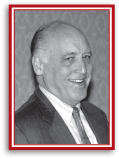
Citizens for Fair Taxation—rather than the customary church, hospital, or health charity—was the entirely unorthodox beneficiary designated by Leo Linbeck’s family for gifts in lieu of flowers. To those who knew him well, this choice fit the man and his life. Leo Linbeck loved ideas and causes, of which Texans for Lawsuit Reform was a leading example. But as TLR’s agenda was translated into law, Leo’s focus centered increasingly on the nation’s tax policy.
Leo refused to accept the current federal taxation regime as inevitable, just as he brushed aside the advice of state officials and legislative “experts” who advised TLR twenty years ago that we should be prepared to accept, at best, passage of only one watered-down reform bill per legislative session. He was similarly undaunted by the tax reform nay-saying of Washington’s K Street tax mandarins.
Like almost every knowledgeable student of our tax laws, Leo saw the burdens and illogic of federal tax rules as imposing a heavy toll on the U.S. economy and the prosperity of both citizens and corporations at every level of society. Unlike almost everyone else, however, Leo was not willing to simply shrug and turn his attention to something more relaxing, like golf. To the contrary, he co-founded Citizens for Fair Taxation and threw himself into its work with a passion that never abated.
Identifying economic absurdities generated by federal tax policy was a Linbeck specialty. Bear with me while I discuss one of the most egregious: how U.S. tax policy confers on foreign manufacturers a guaranteed 18 percent price advantage over American goods, both at home and abroad. This fiasco of a tax policy, though devastating to U.S. competitiveness in international trade, is little known, yet it is easily proven and so straightforward that anyone who can read a newspaper can understand it. Here is how it works: a Mercedes or BMW, when sold in Germany, includes in its price a “value added” tax of about 20 percent. When exported to the U.S., however, that 20 percent is actually rebated by the German government to Mercedes or BMW, so that the cars hit the U.S. market cheaper by 20 percent. Meanwhile, the cost of competing American-made cars inevitably incorporates every cent of income and sales tax burden incurred directly or indirectly by the auto company. The same thing happens overseas: a U.S.-made locomotive, bulldozer, Buick, or Cadillac marketed in China or India is handicapped by a heavy load of U.S. taxes, while the governments of every other industrialized country strip out and refund their domestic value added taxes on everything they export—achieving a guaranteed minimum price advantage estimated at 18 percent.
Always the gentleman, even Leo must have struggled to maintain a respectful tone when explaining this crazy U.S. tax policy, as he did before Congress in 2006. But he was, as always, clear. This tax policy “sends the wrong messages to American producers: ‘Move your plants and facilities overseas, hire foreign workers, and then market your products back to the American consumers whose tax system favors consumption over investment and savings.’ To retailers: ‘Stock foreign inventory.’ To consumers: ‘Buy foreign products.’ The problem is American industry and consumers are taking Congress’s advice. Market forces do work. The burgeoning trade deficit, the loss of American jobs, and stagnating blue collar wages are consequences of failing to send the right message.”

Leo Linbeck believed and urged us all to recognize that tax policy reform could profoundly affect the economy and, through the economy, society. He did not see economics as a dismal science; to the contrary, he saw a vigorous economic system as one of the principal bulwarks of individual freedom. To anyone doubting the destructive potential of tax policy, he might point out Chief Justice John Marshall’s statement, in the early days of the republic, that the power to tax is the power to destroy. If need be, Leo might underscore the power of taxation to change the course of history by pointing out that, despite many smoldering sources of colonial discontent, it was the fiery reaction to unjust taxation that finally ignited the fires of American independence.
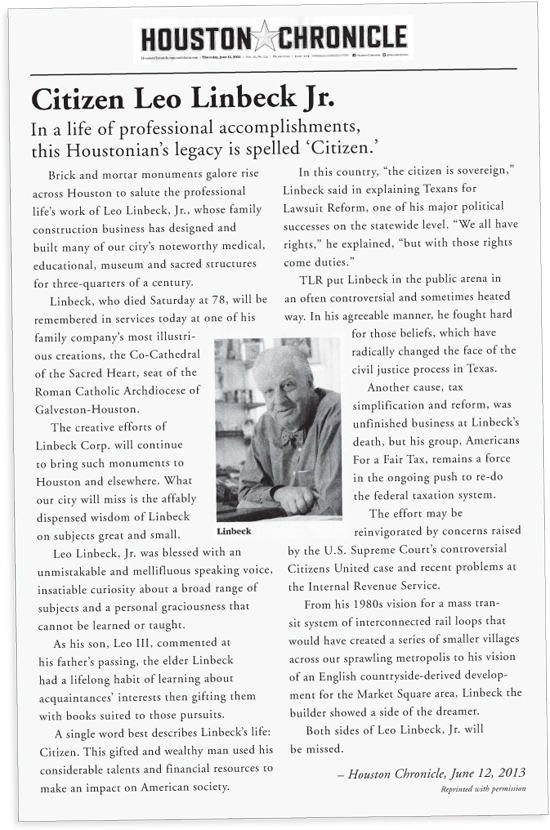
83rd Legislative Wrap-Up
The 83rd Legislative Session, just completed, is the tenth legislative session in which TLR has been actively involved in the fight for lawsuit reform. In each and every session, TLR has helped pass meaningful civil justice reforms. We have also worked with legislators in both parties to draft provisions in bills that would either benefit, or not harm, the fairness and balance of the Texas civil justice system. And we have prevented our opponents from undermining or reversing good court decisions and previous lawsuit reform. In addition to other legislation highlighted in this issue of the Advocate, TLR worked on the bills listed below:

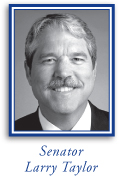
Probate, HB 2380
A “no-contest clause” generally states that an heir who challenges a will cannot inherit under the will. HB 2380 adds clarity to the law about the enforceability of no-contest clauses by providing that a will or trust containing a no-contest clause is enforceable unless a person challenging the will or trust proves that the challenge is brought “in good faith and with just cause.” Unless the challenge is brought in good faith and with just cause, the no-contest clause will be enforced.
HB 2380 was authored by Rep. Sarah Davis, R-West University, and passed the House without opposition. The bill then passed the Senate 30-0 under the sponsorship of Senator Larry Taylor, R-Friendswood.
Subrogation, HB 1869
This bill promotes access to healthcare by increasing the recovery for injured parties, preventing an increase in plaintiff attorney fees, and making it easier for defendants to settle cases. The bill changes the way healthcare plans are reimbursed following liability suits from funds recovered by the injured party.
Under previous law, a person could be injured, sue for damages, receive a settlement and then be required to pay the entire settlement to their health insurer as reimbursement for medical expenses paid for by the insurer.
There was no incentive for an injured person to settle for a reasonable sum if they were to receive no actual recovery. Defendants often had to pay an inflated price to settle, or risk going to trial because they could not reach a settlement agreement.
The bill as filed was supported by tort reform groups and numerous business groups, but was opposed by some health insurance carriers. Rep. Four Price, R-Amarillo, the House bill author, and Senator Robert Duncan, R-Lubbock, the sponsor of the bill in the Senate, helped negotiate a final bill that ultimately received the support of all interested parties, and received near-unanimous bipartisan support in both the House and Senate.
Hiring of Ex-Offenders, HB 1188
TLR supported a measure to remove certain liability concerns related to hiring nonviolent ex-offenders. HB 1188, authored by Rep. Senfronia Thompson, D-Houston, and sponsored in the Senate by Senator John Whitmire, D-Houston, prohibits a cause of action from being brought against an employer, general contractor, premises owner, or third party solely because the employee has been convicted of certain nonviolent criminal offenses. The bill recognizes the public’s interest in helping ex-offenders re-enter lawful society and have employment.
HB 1188 does not apply if: (1) the employer, general contractor, premises owner, or other third party fails to adequately supervise the employee, or (2) the employer, general contractor, premises owner, or other third party knew or should have known of the conviction and the employee was convicted of an offense to which judge-ordered community supervision does not apply, a sexually violent offense, or an offense that was committed while performing under conditions substantially similar to those reasonably expected to be encountered in the employment.
All research indicates that recidivism is reduced in former nonviolent offenders when they are employed. HB 1188 allows employers to employ these individuals without unnecessary liability concerns.
The Drone Bill, HB 912
This bill, authored by Rep. Lance Gooden, R-Terrell, and sponsored by Senator Craig Estes, R-Wichita Falls, imposes criminal and civil liability against an individual who, with intent to conduct surveillance, uses a drone to capture images of an owner or tenant of real property, or of real property, and then distributes those images to third parties.
HB 912, as filed, was criticized by law enforcement, tort reformers, the press and others. It would have allowed open-ended litigation against a person who used a drone to take what would otherwise have been a legal photograph of a person or of real property anywhere in the world. The bill would have imposed criminal and civil liability for distributors of the image, even if that person did not know the image had been taken with a drone. TLR committed substantial resources to negotiating the content of the civil portions of the bill to limit its mass-litigation potential.
HB 912, as enacted, limits the civil cause of action to images taken with a drone of an owner or tenant of real property in Texas, and requires that only the person who took the image and distributed it can be subject to civil penalties. The bill limits the remedy of the complaining party to $5,000 for taking the image or $10,000 for distributing the image. The bill also allows a claim for actual damages if the subject of the image is able to prove the image was taken and distributed with malice.
HB 1325: Another Step Toward Ending Abusive Asbestos Litigation
By Lee Parsley
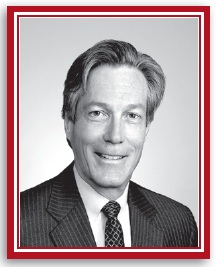
During its 2013 regular session, the Texas Legislature took another step toward putting to rest the most abusive mass tort litigation in our nation’s history.
During the 1980s and 1990s, hundreds of thousands of claimants alleging non-impairing injuries allegedly caused by exposure to asbestos joined lawsuits filed in Texas courts. These claimants were identified as potentially having an asbestos-caused disease by physicians who were working in conjunction with plaintiffs’ attorneys. Most of the claimants were never diagnosed as having any actual disease. Instead, they were identified as having lung scarring that might have been caused by inhalation of asbestos fibers.
In the early 2000s, a number of plaintiffs’ lawyers began filing similar lawsuits in Texas courts, asserting that their clients had lung scarring that might have been caused by inhalation of silica. Silica injury litigation then began to blossom in Texas courts.
S.B. 15 (2005): The First Big Step
In 2005, the Texas Legislature passed S.B. 15, authored by then-Senator Kyle Janek, a physician from Houston, with a strong assist by the Chairman of the Senate State Affairs Committee, Senator Robert Duncan, R-Lubbock. S.B. 15 put into place scientifically valid medical criteria that Texas’s trial courts were required to use to determine whether an asbestos or silica claimant was suffering an actual asbestos-related or silica-related injury. S.B. 15 provided that all asbestos and silica claimants had to provide a physician’s report showing actual diminution of lung capacity caused by inhalation of asbestos or silica. Any claimant who provided the required physician’s report could move his case forward in the legal system. Otherwise, these cases could not move forward.
S.B. 15 provided that any person claiming an asbestos-related or silica-related disease could file suit and provide the necessary medical report at any time before their death; and their relatives could file suit and provide the necessary report until two years after the person’s death. S.B. 15, however, barred dismissal of these cases, even if the claimant could not ever provide the required medical report.
S.B. 15 provided a process by which one court would be assigned to handle all pre-trial proceedings in asbestos cases, and another court would be assigned to handle all pre-trial proceedings in silica cases. These courts—called Multidistrict Litigation Courts, or “MDL courts”—were required to report to the Legislature before the 2011 session about the status of asbestos and silica litigation in Texas. The asbestos MDL judge informed the Legislature that as many 80,000 claimants were parties to asbestos-related lawsuits that could not be advanced because the claimants apparently could not meet the S.B. 15’s medical criteria. The silica MDL judge reported that over 5,000 claimants were parties to silica-related lawsuits that could not be advanced in accordance with S.B. 15’s criteria.
Thus, as these reports showed, there were literally thousands of claimants who were parties to cases filed in Texas courts that could not be advance or dismissed. Without legislative action, these cases would remain pending forever.
H.B. 1325 (2013): The Inactive Docket
The Legislature’s solution to having thousands of cases that could not be advanced or dismissed was passage of H.B. 1325, authored by State Rep. Doug Miller, R-New Braunfels. The goal of H.B. 1325 was simple: resolve the cases of thousands of claimants on the “inactive docket” in a fair and efficient manner. H.B. 1325 provides that the cases sitting on the inactive docket must be dismissed by the two MDL pretrial courts, starting on September 1, 2014. The process must be completed within one year. If a claimant sitting on the inactive docket can meet S.B. 15’s medical criteria, they have until September 1, 2014, to file the necessary medical report to activate the case. After that date, all such cases are subject to dismissal.
H.B. 1325 provides that any dismissed case still gets the benefit of the unusually generous statute of limitations created by S.B. 15. A claimant can re-file the case at any time he can meet S.B. 15’s medical criteria. And if a claimant re-files a case, H.B. 1325 provides that the case is treated as if it was never dismissed. A claimant is put back in the same position legally as if his case had remained pending all the time.
Because of H.B. 1325, both claimants and defendants will no longer have unresolved cases pending in the Texas judicial system. At the same time, H.B. 1325 does no harm in the legal sense to the claim of anyone who is actually suffering from an asbestos-caused or silica-caused disease.
Representative Miller is to be commended for pursuing this legislation for two sessions. He received substantial support from Representative Tryon Lewis, R-Odessa, Chairman of the House Judiciary & Civil Jurisprudence Committee, and Representative Travis Clardy, R-Nacogdoches. In the Senate, long-time advocate for civil justice reform, Senator Robert Duncan, R-Lubbock, sponsored the bill and moved it quickly through the Senate. All of these fine legislators are to be congratulated for their work on this important bill.
Working for a Better Civil Justice System: TLR Monitors Hundreds of Bills Each Session
By Mike Hull, Outside Counsel, TLR & Lee Parsley, Outside Counsel, TLR

TLR’s major legislative efforts, described in other sections of the Advocate, represent only a portion of the work TLR does during a legislative session. TLR also commits substantial resources to three goals: advancing the interest of tort reform where possible, preventing an erosion of existing reforms and advocating against legislation that would create new tort issues in the future. TLR was successful on all fronts in the recent legislative session.
The 83rd Session: By the Numbers.
6379 bills and resolutions were filed in the 83rd Regular Legislative session: 3950 in the House and 1918 in the Senate. House members also filed 130 joint resolutions, 207 concurrent resolutions and 37 resolutions. Senators filed 63 joint resolutions, 49 concurrent resolutions and 25 resolutions.
TLR tracked 389 House bills, nine House Joint Resolutions and one House Concurrent Resolution, 169 Senate bills and 3 Senate Joint Resolutions. We monitored these bills because they had or could have had some impact – either positive or negative – on the civil justice system.
1447 bills and joint resolutions passed both chambers of the Leg- islature and were sent to the Governor, including 130 of the bills tracked by TLR. No bill TLR opposed was sent to the Governor. Three bills TLR monitored were vetoed by the Governor.
The TLR Legislative Review Process.
TLR reviewed all 6379 bills and resolutions filed during the 83rd Regular Legislative session to determine whether TLR should support the bill, oppose the bill or be neutral on the bill. Bills are reviewed for subject matter as filed and also for the possibility of later amendments during the legislative process.
TLR also receives requests from legislators and from allied groups asking for our help in providing a more detailed review of legislation that has been filed. TLR might be asked to review a bill, support a bill, oppose a bill or help modify language in a filed bill to eliminate potential tort issues. TLR also is asked to review amendments that might be offered to a bill.
Most of the bills that TLR tracked did not require TLR to take a position for, on or against the bill. TLR simply followed the bill through the legislative process, noted what moved and how each piece of legislation was amended. However, some of the tracked bills did require TLR involvement.
TLR actively worked on several dozen bills and resolutions. This involves TLR representatives testifying for, on or against a bill at a legislative hearing. We also do extensive bill analysis, frequently at a legislator’s request, which may involve reviewing the content of a bill, suggesting new content or redrafting the legislation. Of particular interest, this past session saw proposals for a much needed pay raise for judges, an increase in funding for appellate courts, an increase in the penalties for barratry, successful avoidance of an attack on the provisions reducing the frequency of health care liability suits, legislation limiting the interest paid on some portions of personal injury judgments, modest increases in funding for the operation of state courts, and a call for an interim study on the way judges are selected.
Examples of Bills Tracked by TLR On the 83rd Legislative Session
HB 1013 By Rep. Susan King, R-Abilene: The dram shop law covers the liability of adults who serve alcohol to minors (under eighteen) if that service later causes an injury. The Alcoholic Beverage Code defines a minor as someone under 21 years of age. This bill would have raised to 21 the age to which the dram shop law applies. The bill did not pass.
HB 1118 By Rep. Yvonne Davis, D-Dallas: Addressed current law which allows but does not require the use of original documents in court proceedings. This bill would have required the use of original documents in court. The bill did not pass.
HB 1445 By Rep. Joe Farias, D-San Antonio: Provides that the attorney general must immediately pay into the state treasury money received by its office for a debt, a penalty, or restitution and that the comptroller must credit that money to the judicial fund for programs approved by the Supreme Court that provide basic civil legal services to the poor. Enacted into law.
HB 1528 By Rep. John Otto, R-Dayton: Would have moved Walker County out of the First and Fourteenth Court of Appeals districts and into the Tenth Court of Appeals district. The bill did not pass.
HB 1598 By Rep. Naomi Gonzalez, D-El Paso: Would have increased the maximum jurisdiction of Justice of the Peace courts from $10,000 to $15,000. The bill did not pass.
HB 1887 By Rep. Joe Farias, D-San Antonio: Would have provided a new avenue for a military veteran to bring suit against a homebuilder for alleged construction defects. The bill did not pass.
HB 2434 By Rep. Tracy King, D-Batesville: Provided that a person could not, without the consent of the landowner or the landowner’s agent and with the intent to harm the landowner use any device to produce an audio, visual, or audiovisual record of a person lawfully engaged in field trials or in the process of hunting or catching wildlife on the landowner’s property, or distribute that record. The bill did not pass.
HB 2545 By Rep. Doug Miller, R-New Braunfels: Would have required claimants in asbestos cases to seek payments from trust funds created to pay asbestos claims before proceeding to trial. The bill did not pass.
HB 2660 By Rep. Richard Pena Raymond, D-Laredo: Provided that a report of an expert witness in a workers’ compensation case had to include discoverable factual observations and calculations made, tests conducted, supporting data evaluated, photographs taken or examined, opinions formed by the expert, and any other basis of the opinions formed by the expert. The bill did not pass.
HB 2705 By Rep. Paul Workman, R-Austin: Would have revised the amount of civil penalty that the Attorney General could pursue and collect for alleged violations of the Deceptive Trade Practices Act, such that the penalty would vary depending on the culpability of the alleged wrongdoer. The bill did not pass.
HB 3098 By Rep. Tryon Lewis, R-Odessa: Prohibited the use of a defendant’s net worth as evidence of the amount of exemplary damages to be awarded by the jury. The bill did not pass.
HB 3117 By Rep. Cindy Burkett, R-Sunnyvale: Would have given the Attorney General authority to compromise and settle claims asserted in a civil action brought by a local government for alleged environmental damages caused by the defendant, without the consent or approval of the local government. The bill did not pass.
HB 3119 By Rep. Cindy Burkett, R-Sunnyvale: Would have prohib- ited local governments from employing lawyers on a contingent-fee basis to pursue civil actions for alleged environmental damages. The bill did not pass.
HB 403 By Rep. Sarah Davis, R-West University: Provides that a “certified municipal inspector” who provides services for free during a state of emergency is not liable for civil damages, including personal injury, wrongful death, property damage, or other loss related to the inspector’s act, error, or omission in the performance of the services, unless the act, error, or omission constitutes gross negligence, or wanton, willful, or intentional misconduct. Enacted into law.
HB 487 By Rep. Cecil Bell, R-Magnolia: Provides that local governmental officials may request or accept the loan or operation of construction equipment or other heavy equipment by the owner or operator of the equipment, as applicable, or the donation of resources to the extent necessary to address a manmade or natural disaster; and who provides care, assistance, or advice to the government in these circumstances is immune from civil liability. Enacted into law.
HB 489 By Rep. Jose Menendez, D-San Antonio: Provides that a person with a total or partial disability who has or obtains a service animal is entitled to full and equal access to housing accommodations and public facilities. Enacted into law.
HB 586 By Rep. Paul Workman, R-Austin: Amends current law relating to the waiver of sovereign immunity to provide that a service provider may sue the State for breach of contract for engineering, architectural, or construction services or for materials related to engineering, architectural, or construction services brought by a party to the written contract in which the amount in controversy is not less than $250,000. Enacted into law.
SB 1247 By Sen. John Carona, R-Dallas: Would have regulated payday and car title lending by requiring disclosures about the terms of the agreements, and created a statewide reporting program for such loans so that lenders could determine if a borrower had other outstanding loans. The bill did not pass.
SB 338 By Sen. Jose Rodriguez, D-El Paso: Would have added social workers, and retired social workers who are eligible to engage in the practice of social work under Texas law, to the list of “volunteer healthcare providers” found in a chapter of the Civil Practice and Remedies Code providing immunity for persons providing services without fee. The bill did not pass.
SB 897 By Sen. Craig Estes, R-Wichita Falls: Would have allowed a person who was prosecuted, but acquitted, for an alleged criminal offense related to filming a peace officer to recover damages in a civil action brought against the governmental unit that employed the peace officer. The bill did not pass.
SB 926 By Sen. Joan Huffman, R-Houston: Would have provided that communications between a workers’ compensation insurance carrier and an employer are confidential and privileged if they meet certain criteria. The bill did not pass.
SB 958 By Sen. Troy Fraser, R-Horseshoe Bay: Provides that a local water district or water authority that enters into a written contract stating the essential terms under which the local district or authority is to provide water to a purchaser for use in connection with the generation of electricity waives sovereign immunity to suit for the purpose of adjudicating a claim that the local district or authority breached the contract by not providing water, or access to water, according to the contract’s terms. Enacted into law.
SB 966 By Sen. Royce West, D-Dallas: Is related to the creation of the Judicial Branch Certification Commission and the consolidation of judicial profession regulation; imposing penalties; authorizing fees. Consolidates four certifying commissions/boards (for court reporters, guardians, interpreters, and process servers) currently under supervision by the Texas Supreme Court into a single commission. Enacted into law.
HB 3323 By Rep. Garnet Coleman, D-Houston: Would have provided that current law forcing an election of remedies for alleged unlawful employment practices did not limit a person’s right to bring an action in a court to recover against an employer who engaged in tortious conduct that might also constitute an unlawful employment practice. The bill did not pass.
SB 522 By Sen. Craig Estes, R-Wichita Falls: Would have revised sections of the Administrative Procedures Act to clarify some procedures and make some appellate procedures similar to appellate procedures used in courts. The bill did not pass.
SB 1367 By Sen. Robert Duncan, R-Lubbock: Relating to abolishing the Texas Health Insurance Pool. As soon as practicable after the effective date of this Act. Enacted into law.
SB 1743 By Sen. Jose Rodriguez, D-El Paso: Would have provided that an employee could not be suspended, terminated, disciplined, discriminated against, or retaliated against for seeking to recover wages owed to the employee by filing a complaint with a governmental entity, seeking or accepting the assistance of a nonprofit organization or an employee rights organization, exercising or attempting to exercise a right or remedy granted to the employee by a contract, local ordinance or order, or federal or state law, or filing a wage claim; and that an employee had a cause of action against her employer if any of the prohibited acts occurred. The bill did not pass.
Maritime Venue Reform Bill Helps Texas Ports Thrive
2013 marks the sixth anniversary of the passage of HB 1602, a maritime venue reform bill that eliminated a loophole in the state venue law that had resulted in an explosion of lawsuits against the dredging vessels that work the Texas gulf coast.
Texas ports and waterways are a key component of the Texas economy. In 2011, Texas ports moved 564.7 million tons of cargo generating $277.6 billion in economic activity in Texas, or about 25% of the Texas Gross State Product. Texas ports produce 1.4 million Texas jobs and $6.5 billion in state and local taxes.* The Port of Houston is the largest in the nation and the 10th largest port in the world. Statewide, Texas has over 100 ports and a thousand miles of Texas channel. In 2006, lawsuits targeting the maritime industry, perpetrated by only a few personal injury trial lawyers on the Gulf Coast, were a threat to the state’s global and domestic market distribution system and the strength of the overall economy.
Both Texas-based dredging companies and companies working in Texas from other states began to experience an explosion of personal injury lawsuits, which increased liability costs by as much as 300 percent for companies dredging in Texas. Companies that had operated for decades with few or no lawsuits were suddenly under assault. The cost of critical dredging and maintenance in ports throughout the state skyrocketed. Dredging projects were cancelled in Port Mansfield and at the Port of Brownsville, dealing a heavy blow to local and regional businesses.
TLR and a coalition of groups statewide, including every dredging company in Texas and most Texas Ports, worked throughout the 2007 Legislative session to close the loophole that resulted from a 1995 exception to the general venue statute for Federal Employees Liability Act and Jones Act claims. The venue exception allowed entrepreneurial trial lawyers to bring claims against the dredging companies in the home counties of the plaintiffs. The loophole for maritime claims created an avalanche of Jones Act claims against dredging companies, filed primarily by two attorneys, in four South Texas counties—Cameron, Hidalgo, Zapata and Starr.
HB 1602, sponsored by Sen. Troy Fraser and State Rep. Corbin Van Arsdale, closed the loophole and assured that Texas would remain a global market hub on the cutting edge of international competitiveness. Specifically, HB 1602:
Amended Section 15.018 of the Civil Practice and Remedies Code and established venue for Jones Act claims filed in Texas state courts as follows:
(1) In the county in which all or a substantial part of the events or omissions giving rise to the claim occurred; or
(2) in the county where the defendant’s principal office in Texas is located;
(3) if venue is unavailable in one of the counties described in (1) or (2) above, then the claimant can file a Jones Act claim in the county where the plaintiff resided at the time the cause of action accrued.
HB 1602 built on the venue reforms successfully advocated by TLR in 1995, which require plaintiffs to bring claims in the county where the accident occurred or in the county where the defendant does business.
Tom Langan, of Weeks Marine, an international company that dredges in Texas, recently called TLR’s role in the passage of HB 1602 “an historic accomplishment.”
“Ever since Governor Perry signed HB 1602 into law, the threat of meritless lawsuits has virtually disappeared. I cannot speak for others in the dredging industry, but for my company HB 1602 has saved hundreds of jobs and millions of dollars as well as strengthening the Texas Maritime economy,” Langan said.
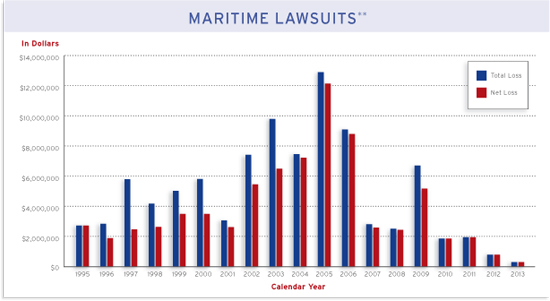
*2011 Economic Impacts of the State of Texas Ports and Maritime Industry, Texas Ports Association. ** Source: Weeks Marine
Eulogy for Leo Linbeck, Jr.
By Leo Linbeck III
A little over 12 years ago, I stood before an assembly of mourners like this one. In fact, it was a lot like this one, as many of you were there: it was the funeral of my mother, Connie Linbeck, who preceded my father in death on 29 January 2001.
The theme of mom’s eulogy was Grace, in both senses of the word — that state of elegance and refinement that she personified, and the gift from God that justifies our faith.
The theme of dad’s eulogy is Virtue. Dad was a man of virtue, a good man, so it seems appropriate to talk about his virtues; in particular, the theological virtues:
Faith. Hope. Love.
Dad was a man of faith.
A lifelong, committed, orthodox Catholic, he took his faith seriously, and was always striving to obtain a deeper understanding of God, His teachings, and His Church. He was a voracious reader—and, yes, a polymath—and he believed that reason informed faith, and faith reason. But unlike many others of an intellectual bent, he realized that there is a big difference between knowing what is good, and doing and being good. Newman put it best in his Idea of a University:
Knowledge is one thing, virtue is another; good sense is not conscience, refinement is not humility, nor is largeness and justness of view faith. Philosophy, however enlightened, however profound, gives no command over the passions, no influential motives, no vivifying principles…Quarry the granite rock with razors, or moor the vessel with a thread of silk; then may you hope with such keen and delicate instruments as human knowledge and human reason to contend against those giants, the passion and the pride of man.
Faith and its human marks—church, culture and meditating institutions—were for dad the way to “contend against those giants, the passion and the pride of man.” He had faith in God, not in human nature. He believed that we were created in the image and likeness of God, but we are flawed. Original sin haunts the human race, and requires constant vigilance to keep it in check. That is why his faith led him into the public square. His involvement in public policy was grounded in his faith in God, the importance of justice in living out his faith, the need for a well-ordered society to achieve justice. And because of his deep and abiding faith, he was both fearless and generous; he welcomed challenge and debate, and lived by Churchill’s famous dictum:
In war, resolution; in defeat, defiance; in victory, magnanimity; in peace, goodwill
His faith brought him into partnership with Dick Weekley and Dick Trabulsi to form Texans for Lawsuit Reform. Incensed at the injustice of the civil justice system, they set out to level the playing field and restore a sense of balance to the law.
His faith led him to start Americans for Fair Taxation with Bob McNair and Jack Trotter. He was appalled at seeing the tax code used by the political class to reward friends and punish enemies, and the way that taxing production instead of consumption created a culture of materialism and lack of respect for workers. So they set out to change the system. And they may yet win.
He was that rarest of political players: a man who was able to distinguish his personal interests from the public good, and put the public good first. And that was natural to him because he put God first.
Faith was cornerstone of the life that he built. And what a life it was.
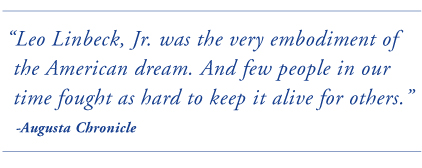
Dad was a man of hope.
He was born in 1934 in Dallas, a fact he strived to keep well hidden from his fellow Houstonians. From the outset, his parents, Leo and Patti Ruth Linbeck, had high hopes for him. Actually, it’s more accurate to say that his father had high hopes for him; you see Honey, his mother, had no need for hope when it came to dad. Honey was absolutely certain that he was going to be a great man.
Within a few years, his two sisters — Suzanne and Poppy — were born. Growing up with three strong women would force any young man to develop hope. Fortunately, not only did he survive that trial, he learned to thrive in the presence of strong women — a character trait that would later prove of considerable value in his married life.
As a young man, he was a great baseball player — a pitcher. He was legendary among his peers — people like his lifelong friends George Strake and Lupe Fraga — for having a blazing fastball. Really blazing. Scary blazing. So blazing that opposing hitters also began to hope — hope that they’d never have to face him again, hope that he wouldn’t miss the plate too far to the inside. (You see, he not only had hope, but he shared it. He was a generous guy.) His talent drew the attention of professional baseball scouts, and he was offered a minor league contract with the Baltimore Orioles organization.
But dad hoped for more than the life of a professional athlete. He loved to build—a love he inherited from his father, who had by then started a general contracting firm, Linbeck Construction. And he hoped, someday, to run the family business. Which he did, magnificently. He was so proud of all of the people at Linbeck, and especially proud of this building. He was always grateful to Archbishop Fiorenza for the opportunity to build it.
Anyway, back to our story. He headed off to South Bend, Indiana to attend the University of Notre Dame where he studied engineering. Because of a freak diving accident in which he broke his neck, his baseball career never took off, but he did play on the golf team at Notre Dame.
I should take a moment now to talk about dad and golf—and hope. Dad loved golf, and golf is the ultimate test of hope. With each shot, you have the opportunity to do something amazing, but the likelihood that you’re going to do something awful. You must be a hopeful person to play golf.
Dad had this amazing long drive talent. I can remember watching his drives leave the tee, the ball screaming at Mach Two about 10 feet off the ground, and then about 100 yards out, beginning a rapid ascent, then following a gorgeous parabolic path, and finally landing in the middle of the fairway. He would routinely drive the ball 300 yards, and that was back when woods were made of, well, wood.
And dad played a lot of golf. I grew up thinking that Sunday was for church, Monday through Friday was for work, and Saturday was for golf. He would also often hit the practice tees during the week, refining his game, particularly his putting game. He was legendary for sinking the crucial putt in a competition, especially when money was on the line. I look forward to seeing everyone at the reception after this mass, because he left me a list of folks who still owed him money.
But for the longest time, despite decades of play, dad had never achieved what all golfers long for: a hole-in-one. Now a hole-in-one is 1% skill and 99% luck. You’re supposed to hit a little white ball into little hole about 150 yards away with a single stroke. Most golfers never get a hole-in-one. And while dad came tantalizingly close many times, but it just didn’t happen.
Still, he never gave up hope. Then, on July 3, 2001, on #7 at Castle Pines Golf Club — a golf mecca developed by his friend Jack Vickers — it finally happened. Striking his iron on that 141-yard par 3, the ball flew through the thin Colorado air, took one bounce, and landed in the cup. It was his happiest golf moment. And it confirmed for him what he always believed, and what he lived:
Hope is rewarded in the end.
Dad was a man of love.
I mentioned mom at the beginning of this eulogy. Dad deeply loved his Connie Belle. They met, appropriately enough, at a golf tournament in Colorado, at the only family vacation her family ever took. They married, and raised six children together, and I can tell you that the glue that held us together as a family was their love for each other. What all the kids came to understand is that we were, in a profound way, extensions of their love.
Their love first gave us life, and then showed us how to live.
Of course, when mom got sick with leukemia and died, it left a huge hole in his life, and ours. We all missed her presence, and no one more than dad.
But dad had too much love to live out his life alone. And having experienced the joy of one happy marriage, he longed for another.
Bette was the right woman at the right time for dad. Since I worked every day with dad, I could see the difference before and after Bette. After mom died, dad seemed a little melancholy and incomplete. But when he began seeing Bette, and he had again someone to love unconditionally, he was his old self again.
Actually, when I say his “old self,” I don’t mean like dad at age 60. More like a totally smitten teenager. Actually, when I say “totally smitten teenager,” it’s probably not fair. I mean, my oldest son, Leo4, was much more calm and mature in his female relationships at the time. And he was 10 years old.
It was really kind of embarrassing. But maybe that embarrassment was more my problem. You see, it didn’t seem fair. Most of us are blessed if we can find one person to love completely and for the rest of our life. And dad was able to find two. Still, he deserved it.
Unlike his marriage to mom, Bette came as part of a package deal. Dad loved her three children and their children, and they greatly enriched his life, and he theirs. And his love was a powerful binding force that brought the entire family closer together, particularly as dad got sick. I’d like to think that’s why he stayed with us for the last 3 months. To bind us together one last time. It was his special parting gift.
That, and the bow ties.
Dad was a man of love, and that love was a powerful force for good. It was a centripetal force in a centrifugal world.
Sainthood
So dad lived a life of virtue, a life of faith, hope, and love.
There is another word for such a man: saint. Not a canonized saint, mind you; making that call is above my pay grade. But as a man widely acknowledged to have lived a life of virtue, I’ll put in my vote for him as a “lower case s” saint.
So I’d like to end with a few words about saints from the great 20th Century Catholic theologian, Hans Urs von Balthasar:
The saints know that God is never strange, other. He is, when he calls me, closer to me than I am myself. They are spurred on by his self-giving to attempt and to realize things which those who remain tied to their own resources could never have dreamed of. The only man who is estranged is the one who refuses to listen to the call or who only follows it half-heartedly. The saint is the proof that Christians can become whole people, out of grace better than nature. He is wholly aflame…he is selfless and yet is wholly a self, a man. He does what others plan to do, or deliberately forget…They are the true realists; they take seriously the hopelessness of man as it is and do not seek refuge from the present in the future. They are clever but not calculating; they live out of a desire to squander themselves which stems from God’s Eucharistic love.
And they are humble, that is to say the mediocrity of the Church does not deter them from joining themselves to her once and for all, for they know well enough that without the Church they would not find their way to God. They do not fight mediocrity in a spirit of contestation, but by spurring on those who have quality, by inspiring them, by igniting them… And if they are genuine, they never point to themselves; they themselves are only a reflection; it is the Master of the flame who is all-important.
Dad carried the torch well. May the Master of the flame watch over him and care for him, now and through all eternity.
